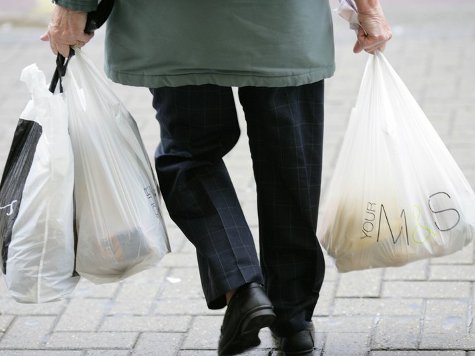Today Governor Jerry Brown signed SB 270 into law, prohibiting grocery stores from putting shoppers’ goods into plastic grocery bags. Immediately thereafter, the American Progressive Bag Alliance (APBA), which represents the plastic bag manufacturing industry, announced that it would start taking the necessary steps to prepare for gathering signatures and qualifying a referendum to repeal SB 270 on the November 2016 ballot.
The bill, sponsored by State Sen. Alex Padilla (D-Pacoima), would also mandate that grocery stores charge a fee of no less than ten cents for each paper grocery bag that is used. The paper bag fee has been particularly controversial because it will generate hundreds of millions of dollars and allow the grocery owners to keep that money. The increased costs to grocers for paper bags is only a fraction of this amount, so this new law will be a big profit center for grocers, explaining why the influential California Grocers Association, historically an opponent of a ban, suddenly came out in support of the ban.
Except there is a very real chance that SB 270 will never actually go into effect.
Immediately after the announcement by Brown’s office that the Governor had signed SB 270, Lee Califf, the Executive Director of the APBA had this to say:
The approval of SB 270 by the California legislature and Governor Jerry Brown could serve as a case study for what happens when greedy special interests and bad government collide in the policymaking process. Senator Padilla’s bill was never legislation about the environment. It was a back room deal between the grocers and union bosses to scam California consumers out of billions of dollars without providing any public benefit–all under the guise of environmentalism. If this law were allowed to go into effect it would jeopardize thousands of California manufacturing jobs, hurt the environment, and fleece consumers for billions so grocery store shareholders and their union partners can line their pockets.
If simply allowed to take effect, California would be the first state in the country to enact a statewide ban on plastic grocery bags. But if the Bag Alliance is able to gather 504,760 valid signatures of registered voters in California over a 90-day window period that begins after the state issues a Title and Summary for the referendum, and approves signature petitions, then the law will be suspended, and placed onto the November 2016 general election ballot.
If a majority of voters cast ballots to ban their own ability use plastic grocery bags, and to require themselves to pay a tax on paper bags, only then would SB 270 become the law of the land. Obviously, this will be a very high profile issue on that presidential election ballot.
California has one of the most liberal legislatures in the country. So much so that even though Democrats enjoy a strong plurality among registered voters in the Golden State, statewide voters often act as a check on what takes place in the State Capitol. If before voters in 2016, this ban could very well be an opportunity for voters to once again push back against extremism coming out of the State Capitol.
As for the likelihood that this referendum makes the ballot, it would be pretty high. Because of industry support, one can pretty much assume that the seven figures it takes to engage in the signature gathering process will be there–and because this is a hot-button issue ,it will be pretty easy for petition signature gatherers to find willing signers with little effort. And it is significant that the signature-gathering firm that has been retained to do this work is the well-regarded National Petition Management Company. The firm, and its principal Lee Albright, have a very strong track record of successfully qualifying measures for the ballot–not only in California, but nationally.
Unlike the unsuccessful effort by wealth Bay Area reformer Tim Draper to put his measure to have Californians cast an advisory vote on splitting California into six separate states, which failed to make the ballot due to a failure to collect enough valid signatures, this effort to refer the plastic bag ban should be looked as being much more serious, and virtually guaranteed to appear before voters.
Brown’s signature on SB 270 was anticipated. A few weeks ago, in what is likely Brown’s only debate appearance against his Republican opponent, Neel Kashkari, the Governor said he would likely sign the legislation. Kashkari has been a vocal critic of the statewide bag ban legislation.

COMMENTS
Please let us know if you're having issues with commenting.